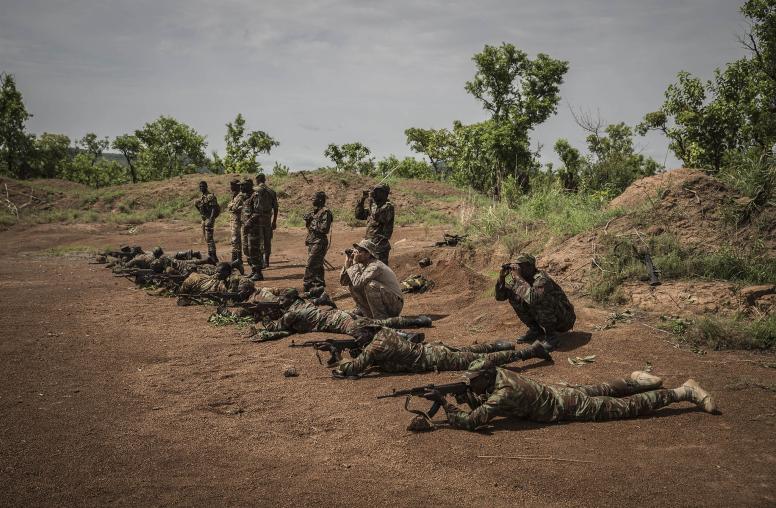From Orlando to Brussels to Baghdad to Jakarta, few regions of the world have been spared the violence generated by those who see value, meaning and opportunity in joining and supporting groups like ISIS. There is growing international resolve to develop joint and sustainable ways to address the transnational threat of violent extremism. Notably, human rights are increasingly seen as critical and pragmatic components—as part of the solution, not an objective that must either be accommodated or a separate line of effort.
Counterterrorism strategy traditionally has been the purview of national governments who have laid claim to both defining what constitutes a security threat and determining how best to mitigate it. As the nature and scope of this current wave of political violence has evolved and spread beyond borders, however, the international community is increasingly leveraging its influence and collective voice against this threat. In January, for example, the United Nations released its Plan of Action to Prevent Violent Extremism to call for concerted action.
“Countries where terror attacks are concentrated are highly correlated with those where the state commits gross human rights abuses.”
The discourse on responses to terrorism and violent extremism, especially in the past decade, has often revolved around the need to “balance” rights and security. Often in times of crisis and of real or perceived threat, the axis tips towards security and away from human rights and the rule of law. The transnational nature of modern violent groups, combined with the involvement of international organizations and a growing understanding of the need for prevention, has led to a clear shift in the conversation.
At a June 2016 OSCE counterterrorism conference in Berlin, a senior official described human rights and security as “two sides of the same coin.” As the discussion about counterterrorism becomes more international, we are moving beyond treatment of human rights as obligations that must be balanced against a security imperative to a realization that rights and security are mutually reinforcing and complementary objectives, and that the promotion of the rule of law is a pathway to preventing violent extremism.
While such points have been made in the past from an ethical perspective, there is also a functional argument to consider. Analysts of political violence have long understood that terrorist groups often deliberately seek to provoke overreaction by states with the expectation that repressive responses will add to the justification for their violence and help galvanize recruitment. Heavy-handed tactics, extra-legal and “special” measures may temporarily reassure a scared public, but often they fuel the grievances that motivate the violence and advance the agenda of extremists.
Countries where terror attacks are concentrated are highly correlated with those where the state commits gross human rights abuses, according to research underpinning the annual Global Terrorism Index. Human rights abuses drive violent extremism, making a measured and proportionate law enforcement and security response essential to breaking the cycle.
Prevention and Tactics
There is another dimension to this discussion about rights and security—how preventive and countering strategies are put into effect. Efforts to prevent and counter violent extremism are often viewed in practice and in policy on two levels: first, as preventative measures to address the conditions that enable violent extremism to flourish, such as abuses by security forces or lack of inclusive and responsive governance; and second, on a more tactical level as measures to identify and divert individuals at risk of joining or being recruited into violent groups.
At the latter, more tactical level of countering violent extremism (CVE), interventions require government and civil society to have the ability to anticipate and divert individuals who may pose a threat before they have committed any crimes. This sensitive area of work requires an accountable and trust-based partnership between police and communities, and a strong rule-of-law culture. This includes parameters to ensure that specific groups are not targeted and that freedom of expression and association aren’t restricted in the process. A legal framework also should clearly define what constitutes a terrorist crime.
Further, how police and governments collect the information they need to keep communities safe and how they engage with civil society organizations in this effort must be fully accountable. Otherwise they run the risk of stigmatizing communities, coercing informants and alienating those who are best placed to help prevent radicalization.
The international community must work towards some consensus on when and where preventative investment is needed, and when and where state and security services have the necessary level of reform and accountability needed to carry out CVE interventions. Supporting the reform of security services in emergent democracies that face substantial transnational security threats is a priority.
USIP has focused much of its CVE initiatives and resources on this challenge. Currently, the institute is working with border security officials in the Western Maghreb who are facing increasing challenges from terrorist groups to ensure their efforts are coordinated and rooted in the rule of law. We have supported the development of safe and productive forums for exchange between women civil society leaders and local police in Nigeria, and have examined closely the risks and opportunities this engagement presents.
The promotion of rule of law and human rights in the context of security strategies to address violent extremism can create a virtuous circle in which security services improve their accountability, effectiveness and legitimacy while decreasing the kinds of actions that fuel grievances and enable violent extremism to flourish. In today’s world, an investment in a human rights approach to the problem of violent extremism seems the only logical and responsible way forward.
Georgia Holmer is director of countering violent extremism at USIP.



